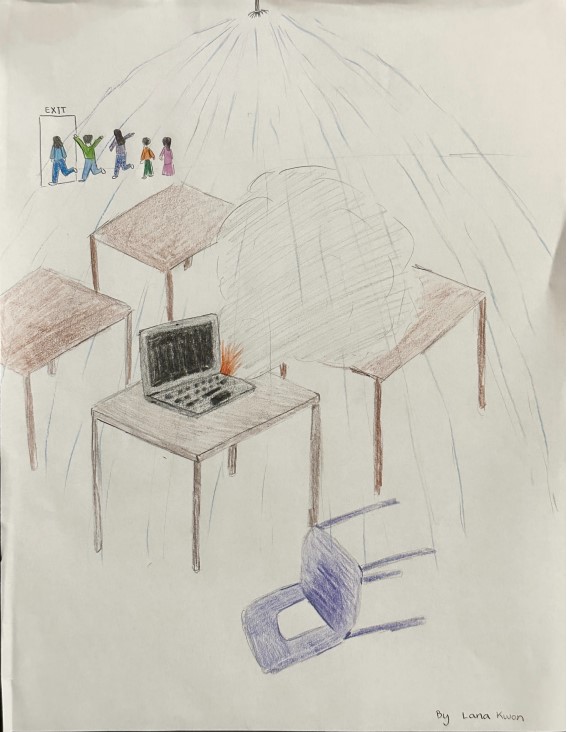In a world of artificial intelligence and homework answers one search away, there always seems to be an easy way out. Today’s generation of teenagers are relying more and more on technology to do their work for them, causing many of them to simply coast their way through high school.
In today’s schools, students are learning few life skills, leaving them struggling to be independent post-graduation.
At Woodbridge High, the solution is evident: implementing life skills courses.
Social science teacher James Leckey asserts that the true responsibilities of adulthood are often shocking to high school graduates.
“If I think back to when I was in high school, I could have used some very basic life skills,” Leckey said.
In an ideal situation, parents should be taking the time to have conversations with their children about life skills.
However, those with complicated familial situations need a place to get this vital information.

“Kids today really have no idea what they’re going to do with their life after they graduate. They don’t really have any previous experience with the life skills like banking and taxes,” senior Phoebe Fisher said.
While in high school, especially in Irvine, today’s teenagers are very sheltered from many of the harsh realities of the world.
“I think that it’s important for us to learn life skills before we go off into an area where there’s not as much protection,” senior Mantreh Asa said.
According to HRH Block, 84% of Americans claim that they learned many things in high school that they have never had to utilize in real life. However, 57% of these adults wish that a course on money management and budgeting had been given in high school. To ensure success for teenagers post-graduation, Woodbridge High needs to be teaching life skills classes, including financial literacy.
“Simple stuff like student loans and college,” Leckey said. “I think there may be a need for more specificity in how that whole process works. ”
Navigating adulthood with no prior instruction or education can be terrifying. Young adults are forced to learn crucial skills as they go.
A study by the American Psychological Association found that teens’ average stress level was 5.8 (on a ten point scale), much higher than the maximum healthy stress level for adults of 3.9.

By becoming aware of this, young people are better equipped to handle what they’re going through and recognize when they need help. This helps reduce incidences of bullying and violence. The average high school student has lots of real-life responsibilities to deal with. One challenge is banking, which Fisher claims needs to be included in our campus’ curriculum.
“I definitely think we should have a class on how to do your taxes,” Fisher said. “As someone who just got a job, I need to know how to file my banking information. That’s very scary for a young person.” High schools should also be helping teenagers figure out possible life paths in further detail.
“We’re always taught about different career paths, but never exactly how we can help ourselves financially,” Asa said.
On the contrary, some may argue that Woodbridge High’s current curriculum already teaches students several important life skills. For instance, students are learning how to exist in a classroom environment, or learning how to learn. “It builds your critical thinking skills,” Asa said.

“I think [students are] learning soft skills like how to send a teacher an email and word it properly, how to engage with another person verbally and eye to eye contact,” Leckey said. “Little things that [students are] going to need in the future.”
While Woodbridge High is not teaching its students about banking and taxes, teenagers are still picking up crucial life skills.
“You learn how to just think critically about the world around you, how to read something, analyze it and understand what it means,” Fisher said.
For its graduates to flourish in their adulthood, it is critical that Woodbridge High teaches its students a combination of study skills, social skills and life skills.
Students and teachers alike advocate for classes on vital knowledge such as how to pay taxes and how to file for mortgage.
Our campus has a responsibility to provide students with the knowledge to survive in the real world, along with a holistic learning experience.









